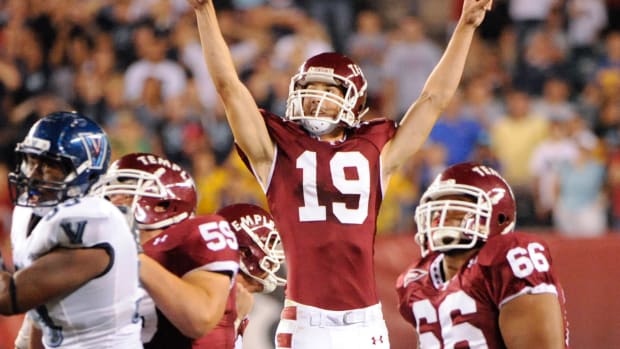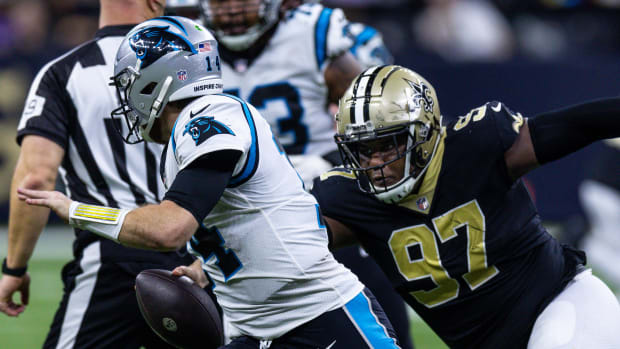
Noah Fant has three attributes that suggest he'll defy NFL TE tradition & shine as a rookie
During the 2019 pre-draft process, I was one of the biggest contrarians to the notion of the Denver Broncos drafting a tight end in the first round. Historically speaking, a first-round tight end’s performance value is lower than players from other position groups and a later-round tight end usually outperforms their day-one counterpart.
For those reasons, it was less than exciting when the Broncos selected Noah Fant in round one, especially with other needs on their roster. However, after further analysis, I believe Fant will defy this trend.
In every analysis, there are outliers that defy the analytic commonalities. In this case, there have been some exceptional tight ends drafted in the first round. To understand these outliers, I dug deep into research and compared two groups.
The groups were tight ends selected in the first round outside the top-10 since 1997 that performed well in their NFL careers and those that did not live up to their first-round status.
The analysis uncovered three metrics that the high performers possessed and the others in the less than stellar group did not.
Stretched the field in college
The first metric that the performers had was at least 13 yards per reception in college. The productive tight ends group stretched the field in college. All but one had at least 13 yards per reception.
In the group that did not live up to their hype, there were only three that hit this mark. However, this is not the end of the story. Beating NFL secondaries is much more difficult than at the collegiate level.
Speed
The productive tight ends also possessed something else: speed.
They typically ran 4.7 seconds or better in the 40-yard dash. A tight end who has elite speed to challenge the seam can translate their college production to the NFL. Only one player from the productive group of tight ends had a forty time slower than 4.7.
Their college production translated to the NFL because they possessed this elite speed. In the opposing group, only two players had this timed 40-time combined with 13 yards per reception in college.
Adequate weight
Finally, the tight ends that performed well in the NFL also weighed in around 250 pounds. A team can’t simply put a wide receiver next to a tackle and call him a tight end.
These players were successful because they were productive in college, translated that production to the NFL due to elite speed and could hold up on the line of scrimmage.
Fant finished his college career with 13.9 yards per reception, blistered the NFL Combine with a 4.5-second 40 and weighs in at 249 pounds.
Bottom line
Fant hit all three marks that indicate a performer in the NFL at the tight end position. Expect him to have a successful career in the NFL.
Follow Thomas on Twitter @ThomasHallNFL and @MileHighHuddle.




